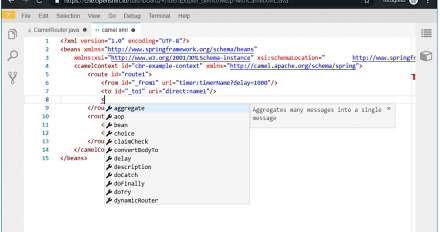
Apache Camel development on Eclipse Che 7
Apache Camel development is improving on Eclipse Che 7 compared to Che 6, so you can leverage Camel, Java, and XML tooling altogether.

Apache Camel development is improving on Eclipse Che 7 compared to Che 6, so you can leverage Camel, Java, and XML tooling altogether.

Everybody seems to be rocking with Kubernetes! Even your favorite repos at GitHub are running on top of it. Don't be the last developer/architect to board this bullet train. Come and learn a LOT in this session about Kubernetes - from getting started to staying productive. We will provide numerous practical tips & techniques that will take you from cloud newbie to cloud native.
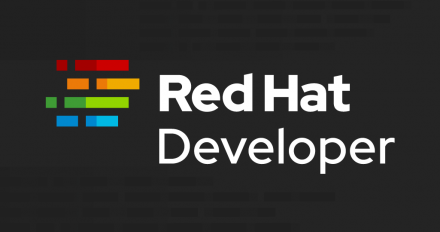
After three years of working on VS Code, we celebrate 3.8-million installations and more than 20-million downloads—two indicators that we are providing valuable VS Code extensions accepted by fellow developers.
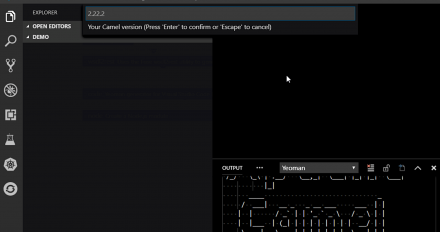
We'll help you get started using the updated extension that works with latest versions of VS Code.
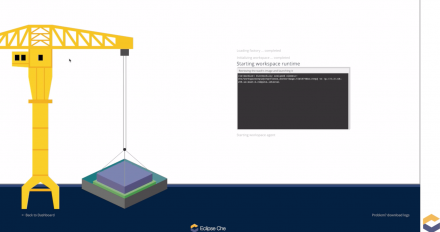
CodeReady Workspaces Product Manager Stévan Le Meur takes you on a tour of Eclipse Che's features, incuding git integration and a sophisticated debugger.

Learn how to create, develop, and run Sping Boot based Camel/Red Hat Fuse projects using VS Code. You will be able to run locally or deploy to Red Hat OpenShift.
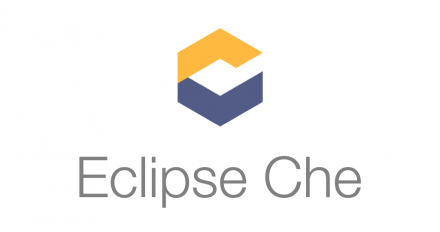
This article explains the new plugin model in Eclipse Theia and the benefits for Eclipse Che 7 developer workspaces. It also covers how the new plugin model differs from the existing Theia extension model.

The Red Hat Fuse Tooling team created a new Yeoman-based Camel-Project generator for developers to jump start their Camel development in any IDE where Yeoman is supported. How to install and run the generator is shown.

The final article in this 4 part series covers Eclipse Che 7 features to help enterprise development teams and discusses release timing.
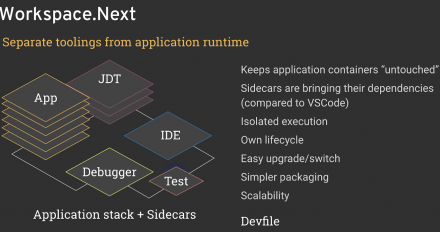
Part 3 of 4 covering Eclipse Che 7 features. With a new workspaces model and full “dev-mode” for application runtimes—Eclipse Che the first kube-native IDE!

Part 2 of 4 articles on upcoming features in Eclipse Che 7. This article provides a deep dive on the new plugin model of Eclipse Che 7 and VSCode compatible extensions.

Part 1 of 4 articles on Eclipse Che 7 featuring a better plugin model, a new IDE, and Kubenative Workspaces — Eclipse Che Is on Fire !

CodeReady Workspaces lets teams code with greater security and faster onboarding while eliminating the "It works on my machine" syndrome.
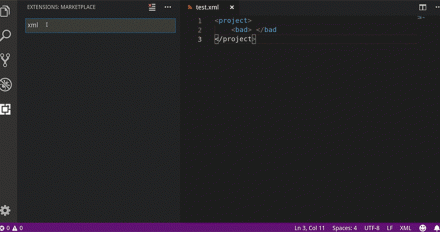
Red Hat XML Extension now available on the VSCode Marketplace with schema-based support. Get syntax highlighting and checking, code completion, document folding, and more.
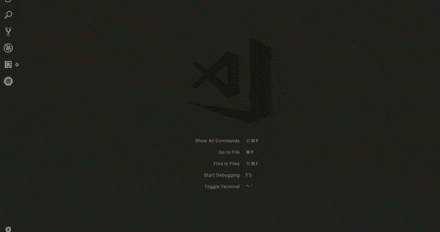
This article introduces the new Red Hat OpenShift extension for Visual Studio Code. It explains the benefits the extension provides, provides a demo video of using the extension, and covers installation details.
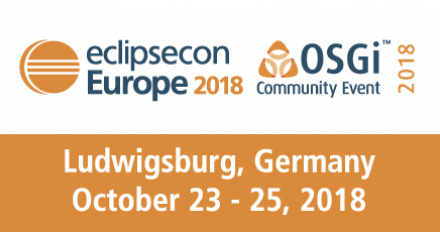
Red Hat is one of the major contributors to the Eclipse Che community. Learn how Red Hat is participating at EclipseCon Europe.
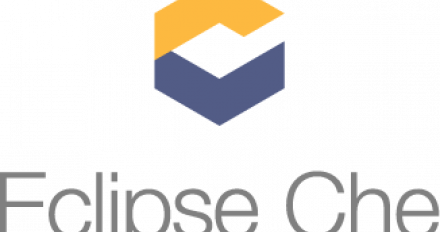
Eclipse Che 6.6 is here, and since the release of Che 6.0, the community has added a number of new capabilities. In this article, learn about new features and how to get started using Che with Kubernetes, Red Hat OpenShift, and Docker.
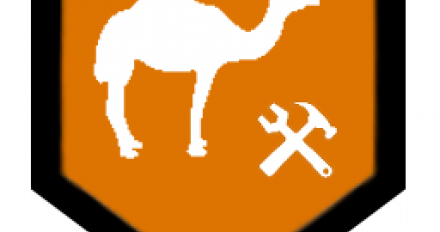
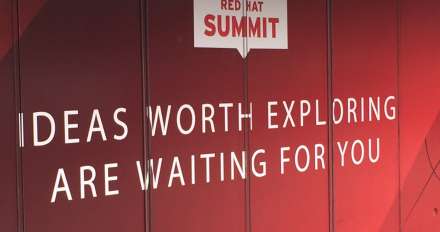
OpenShift.io is a cloud native set of zero-install tools for editing and debugging code, agile planning, and managing CI/CD pipelines. Installing and configuring developer tools is a major time sink; OpenShift.io takes that task out of the picture.
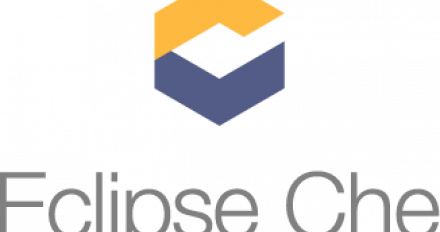
It’s been an incredibly exciting journey for Eclipse Che since the acquisition of Codenvy by Red Hat. Che 6 is the most important release in Eclipse Che history—it is a big release with more than 1,550 commits. So there’s a ton of new goodness for everyone!

A lot of functionality necessary for running in a microservices architecture have been built into Kubernetes; why would you re-invent the wheel with lots of complicated client-side libraries? Have you ever asked why you should use containers and what are the benefits for your application? This talk will present a microservices application that have been built using different Java platforms: WildFly Swarm and Eclipse Vert.x. Then we will deploy this application in a Kubernetes cluster to present the advantages of containers for MSA (Microservices Architectures) and DevOps. The attendees will learn how to create, edit, build, deploy Java Microservices, and also how to perform service discovery, rolling updates, persistent volumes and much more. Finally we will fix a bug and see how a CI/CD Pipeline automates the process and reduces the deployment time.

Yes, Docker is great. We are all very aware of that, but now it’s time to take the next step: wrapping it all and deploying to a production environment. For this scenario, we need something more. For that “more,” we have Kubernetes by Google, a container platform based on the same technology used to deploy billions of containers per month on Google’s infrastructure. Ready to leverage your Docker skills and package your current Java app (WAR, EAR, or JAR)? Come to this session to see how your current Docker skill set can be easily mapped to Kubernetes concepts and commands. And get ready to deploy your containers in production.

Alex Irmel Oviedo Building OpenShift Cartridges presentation given at FISL15 May 2014 in Porto Alegre, Brazil Alex's Tech Blog: http://www.alexove.mallkudev.com/en/2014/05/13/report-fisl-15-porto-alegre/ Follow Alex on twitter @alleinerwolf

(Part 1)Containers are enabling developers to package their applications in new ways that are portable and work consistently everywhere: on your machine, in production, in your data center, and in the cloud. And Docker has become the de facto standard for those portable containers in the cloud. This lab offers developers an intro-level hands-on session with Docker, from installation to exploring Docker Hub, to crafting their own images, to adding Java apps and running custom containers. This is a BYOL (bring your own laptop) session, so bring your Windows, OS X, or Linux laptop and be ready to dig into a tool that promises to be at the forefront of our industry for some time to come.

Containers are enabling developers to package their applications in new ways that are portable and work consistently everywhere: on your machine, in production, in your data center, and in the cloud. And Docker has become the de facto standard for those portable containers in the cloud. This lab offers developers an intro-level hands-on session with Docker, from installation to exploring Docker Hub, to crafting their own images, to adding Java apps and running custom containers. This is a BYOL (bring your own laptop) session, so bring your Windows, OS X, or Linux laptop and be ready to dig into a tool that promises to be at the forefront of our industry for some time to come.